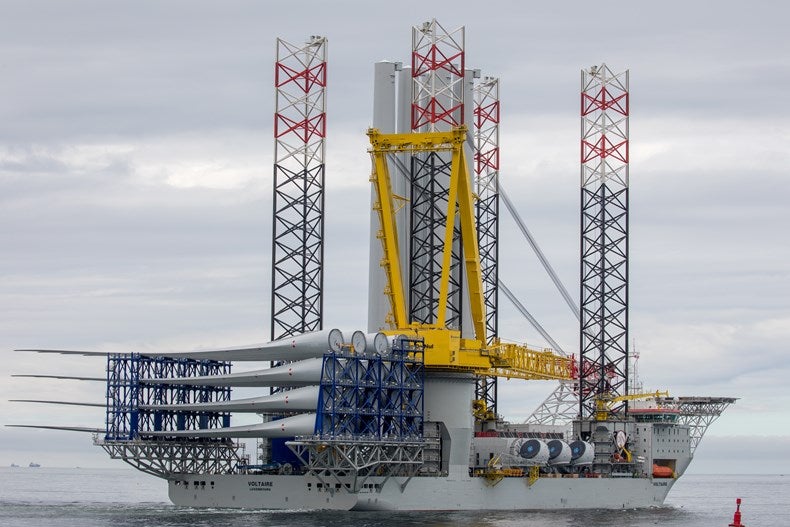
SSE said that the turbine installation campaign at the 3.6GW Dogger Bank offshore wind project located in the UK North Sea is set to commence this weekend.
The offshore wind project will feature a total of 277 turbines.
The turbines, which will be 260m tall, will be installed nearly 128.7km off the coast of Yorkshire by deploying a specialist vessel with a lifting capacity of 3,200 tonnes.
Located more than 130km off England’s North East coast, the Dogger Bank offshore wind farm will generate clean energy sufficient to power six million households annually.
It will be powered by GE Renewable Energy’s 13MW Haliade-X turbines.
The offshore wind project is being executed as a joint venture (JV) between SSE Renewables (40%), Equinor (40%), and Vårgrønn (20%), which in turn is owned by Eni Plenitude and Hitec Vision.
SSE CEO Alistair Phillips-Davies said: “Dogger Bank is one of the biggest and most complex engineering and infrastructure projects anywhere in the world.
“Our progress here with our joint venture partners Equinor and Vårgrønn proves that offshore wind projects of this size are now mainstream and will help turbocharge the transition to the cheaper, cleaner and more secure energy system we all want to see.”
Being developed in three phases, namely Dogger Bank A, B, and C, the offshore wind farm is projected to be completed in 2026.
In February 2023, Equinor and SSE Renewables announced plans to explore the potential to develop a fourth phase of the offshore wind project. Dubbed Dogger Bank D, the fourth phase could add 1.32GW in fixed-bottom offshore wind capacity.
SSE Renewables is leading the JV for the development and construction of the Dogger Bank project. Equinor will take over the operatorship of the offshore wind farm on completion and through its anticipated operational life of about 35 years.
The Dogger Bank project, in its present form, will also create annual carbon dioxide savings equal to the emissions of approximately 1.5 million average internal combustion engine petrol cars, once it is fully operational.
UK Deputy Prime Minister Oliver Dowden said: “This project will generate cheap, clean energy to power millions of homes and provide the UK with greater energy independence in the face of Putin’s energy ransom.
”Disruption to global energy supplies is one of the key risks we’ve highlighted in our new National Risk Register and working with SSE and its partners, we are making Britain more secure.”






